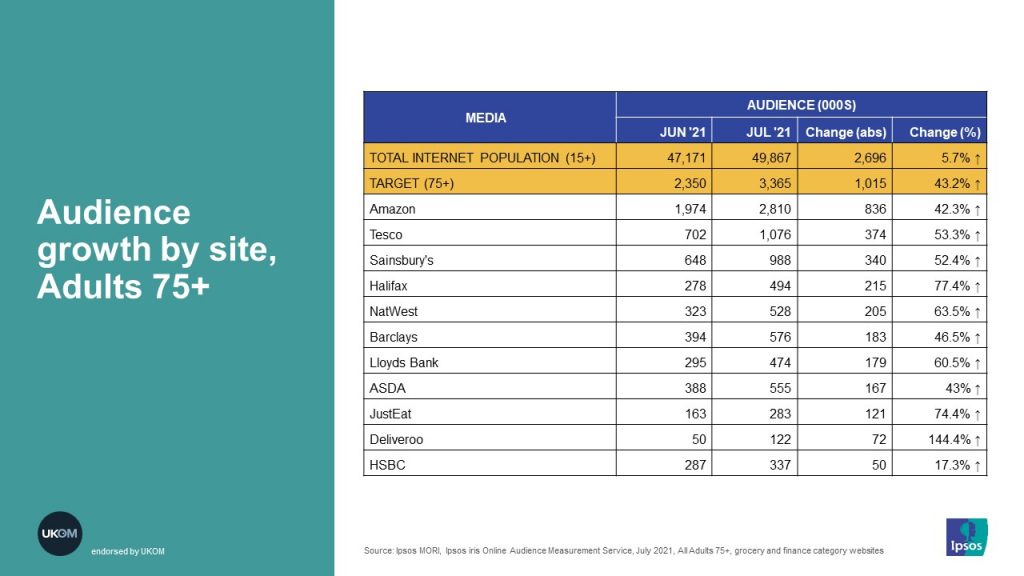My mother, prior to COVID-19, tried online shopping once. She was so annoyed by the substituted items she vowed never to go back; I seem to remember a chicken for a lamb joint she’d requested particularly irked her.
Then, of course, the pandemic put a stop to her weekly shopping trips. She had no choice but to move online for grocery shopping and, for that matter, many other items. This has caused a shift for her from being very sceptical of online shopping to embracing it and broader digital activities; she’s now even signed up to Amazon Prime to get free postage and priority delivery. The latest July 2021 data from Ipsos iris, which reflects new universe estimates, suggests she is not alone.*
Since the start of the pandemic, the UK internet population has increased by 6% (2.7m), now sitting just shy of 50m. But, what’s interesting is where this increase came from. People, such as my mother, aged 75 and over are driving the increase. The number of people aged 75+ who are online has increased by 43%, in absolute terms that’s up by over a million people.
So, with lots of new people online for the first time ever, do my mother’s changing habits mirror what we’re seeing generally? Broadly speaking, yes. Three of the biggest supermarkets have all seen big increases amongst over 75s. But, as with my mother, we’re also seeing a wider adoption of online services: there is big uptake in food delivery companies and 836,000 more over 75s are visiting Amazon! Similarly, there’s the move to managing finances online.

Online brands and propositions need to be aware of this, making the process to purchase as simple as possible. Help and guidance should be easy to find. Brands should work together to ensure things such as the processing of payments works efficiently and provide re-assurance about security. If you’re not doing the basics, it’s likely you’re missing out on that well coined term – the grey pound.
*It’s worth noting that prior to the July 2021 dataset, due to the absence of face-to-face interviewing, the Ipsos iris universe estimates were based on data from before the pandemic started. Thus, we are comparing June 2021 and July 2021 datasets, where the difference reported is mainly due to the update in the population universe.
Source: Ipsos MORI, Ipsos iris Online Audience Measurement Service, July 2021











